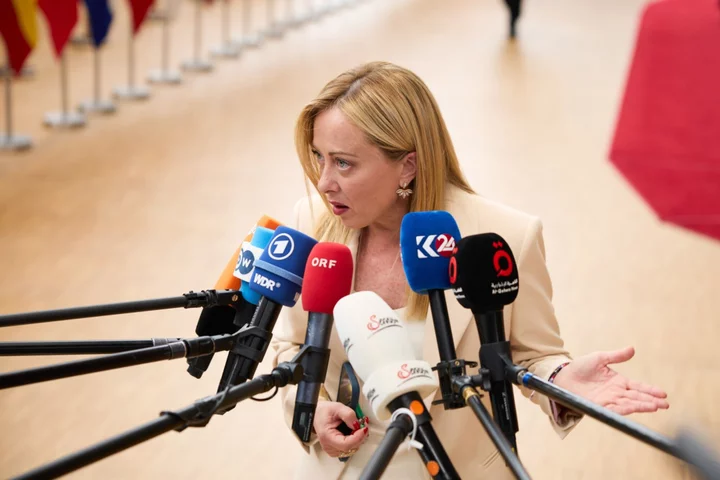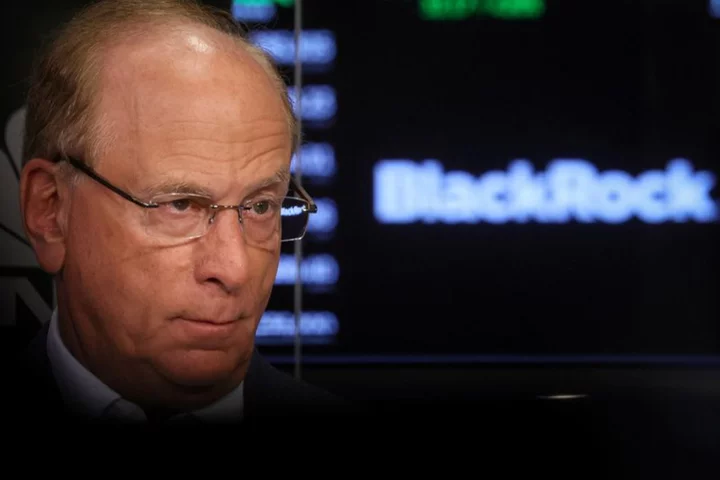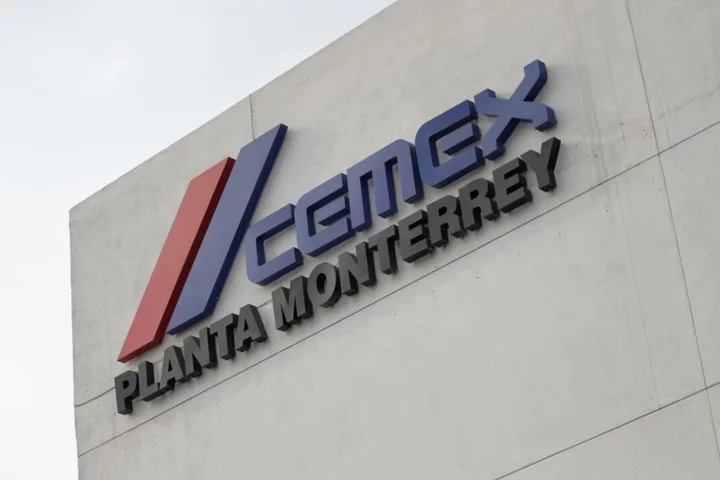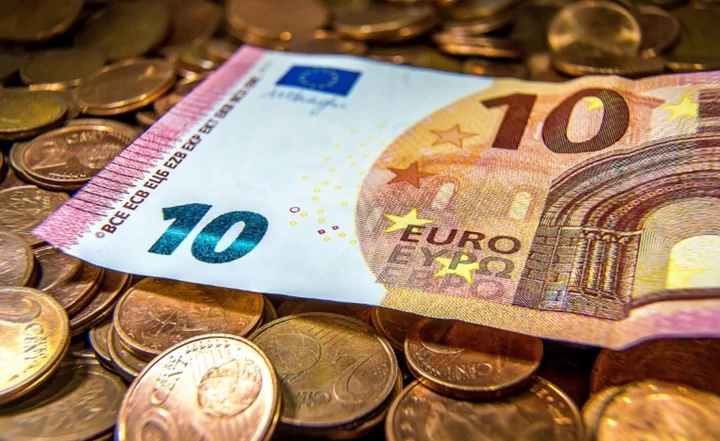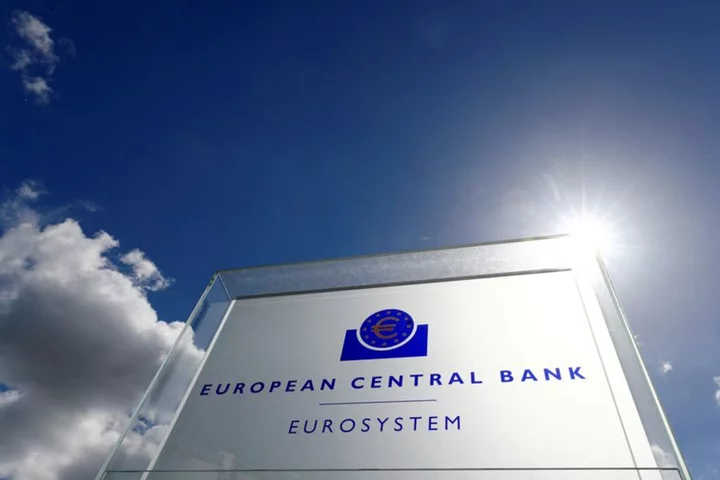For Giorgia Meloni, wielding power in Italy now means steering the country’s biggest businesses too.
The premier’s activism in corporate affairs across the euro-zone’s third-biggest economy is becoming a signature trait, with her version of capitalism crystallizing as one where the government’s role is very much hands-on.
From summoning state company chiefs to discuss the exit of middle managers, as she did with network operator Terna SpA recently, to getting involved in phone operator Telecom Italia SpA’s grid sale this week and also trying to grab bank profits, the Meloni approach is more muscular than Italy has seen in decades.
Almost a year since winning an election with a vow to avoid irking investors, that message has now been honed: the coalition is sticking with fiscal prudence that keeps bond markets happy, but shareholders can expect less deference.
“Only time will tell if she follows up with these dirigiste policies,” said Rosamaria Bitetti, an economist and lecturer at Luiss University in Rome. “The shift raises questions about whether this is a mere summer diversion or is a reflection of her interventionist government’s true intentions.”
Meloni’s decision on Thursday to take a 20% stake in Telecom Italia as part of KKR & Co.’s bid for the company is a clear statement of resolve. But the signs have been there all along.
The 46-year-old premier is a right-wing politician whose roots are steeped in a tradition of state control of the economy, and ever since taking power she has sought to reshape corporate Italy.
The premier and her colleagues have changed the heads of multiple state companies including energy giant Enel SpA, and appointed a new Bank of Italy governor too.
Part of that was luck because several terms of office were expiring, but the emerging economic narrative of the Meloni government is increasingly one where Italy is open for business, but politicians are in charge.
Then there’s the growing presence of her populist deputy premier and League Party leader Matteo Salvini.
Since the death of former premier Silvio Berlusconi, who led one of the other main coalition parties, the government is increasingly a double act between Meloni and Salvini that forces her to cater to his populist base.
Her distrust of the corporate world and need to work with the League leader was also evident in the 40% levy on Italian banks’ extra profits which was backed Monday night by her cabinet.
Salvini presented the tax in a press conference from which Meloni was absent, and the outcome was a market rout that sent lenders’ values tumbling, followed by some backtracking.
A clear message sent by the levy, which lets the government replenish state coffers to pay for electoral promises to voters like tax cuts for families, is that if there’s something to pay for, companies can foot the bill.
Another telling sign of the Meloni approach was a decree passed alongside the windfall tax that allows the state to block technology transfers to states outside the European Union in strategic sectors like AI, semiconductors, aerospace and energy.
While the measure is largely directed at China and concerns of key technology falling into the wrong hands, it’s the sort of tool an interventionist government could use widely even against allies like the US or UK.
Even another decision this week to allow the appointment of an extraordinary commissioner to oversee and assist with foreign investments in Italy exceeding €1 billion ($1.1 billion) opens the door to politicians controlling the process.
Bitetti at Luiss is worried.
The government’s actions “potentially disregard fundamental economic governance principles,” she said. “The current outlook is concerning.”

